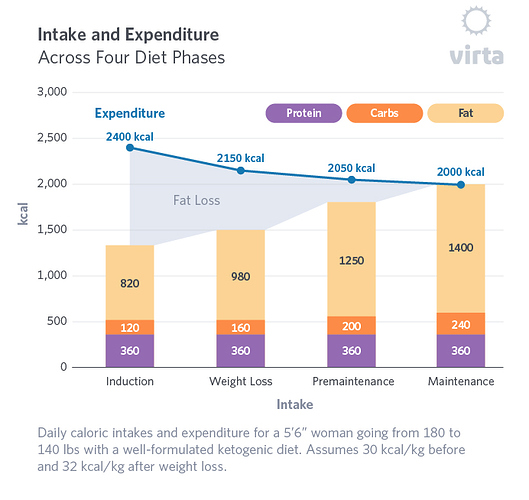I understand that. I was anorexic for medical reasons for eons (malnourishment led to lack of appetite), and eventually there was no connection between food quality/quantity and my appetite. I mostly had no appetite. If someone gave me tons of food I could eat it. If I had no food at all that was fine too. There just wasn’t much of a desire nor satiation point. Keto helped me partly because it forced me to eat, because I was counting all my macros and working out what I had to eat every day.
If that’s what the count should be in my head, then that’s apparently what I should be eating. I don’t have much of a “I should eat less” or “I should eat more” feeling – even years after a lot of weight loss and a lot of health improvement and getting back some appetite.
Well unless I exercise. Then I want to eat everything in sight.
For some people, it really does have to be more by the numbers. It’s just that of all the numbers, calories seem to me to be the one best approached much later into a ketogenic lifestyle – once initial weight loss is past, once the person has adapted well into that new eating plan and its options, and only IF they are having trouble losing fat despite eating ketogenically.
Although in my experience, when I don’t lose weight – except the menopause stall I’m going to exempt from this discussion – it’s been thanks to diet sodas or too much cheese or something else that is either hiking up my body reactions despite “officially” having no carbs, or hiking up my inflammation, despite being lowcarb.


 Not to me but it’s fine, I wouldn’t want spend unnecessarily much money and time and effort on food anyway.
Not to me but it’s fine, I wouldn’t want spend unnecessarily much money and time and effort on food anyway.